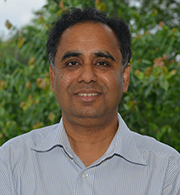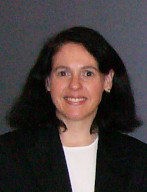Debugging the Trademark Laws: Civil and Criminal Liability for Trafficking in Counterfeit Microelectronics
Date and Time: June 26 - 9:30 am
Patricia E. Campbell [University of Maryland Carey School of Law]
Professor Patricia Campbell joined the Maryland Carey Law faculty in 2007 after spending several years in private practice with law firms and corporations. Immediately prior to her faculty appointment at the law school, she was associate general counsel at Kajeet, Inc., a telecommunications company in Bethesda, Maryland. Her prior experience also included time in private practice as a litigator and transactional attorney with the Fish & Neave IP Group at Ropes & Gray in Palo Alto, California, and Washington, D.C.
Professor Campbell teaches courses on patent law, trademarks and unfair competition, and the intersection of intellectual property and antitrust. She also serves as director of the Intellectual Property Law Program and as director of the Maryland Intellectual Property Legal Resource Center and its Intellectual Property and Entrepreneurship Clinic. Professor Campbell’s research interests include issues relating to patent law and inventions created within the university community, as well as anticounterfeiting measures for high-tech electronics and consumer products. She recently completed a research project for the Defense Microelectronics Activity (U.S. Department of Defense), in collaboration with the Center for Advanced Life Cycle Engineering (CALCE) at the University of Maryland, College Park.
Presentation Abstract
Counterfeit microelectronics have been a persistent threat for the last 20 years or more, and they pose serious risks to human health and safety, harm the economy, and jeopardize national security. The federal Lanham Act provides potent civil remedies for trademark counterfeiting, including injunctive relief, treble or statutory damages, and an ex parte seizure mechanism to preserve evidence. However, an analysis of trademark cases filed from 2009 through 2022 indicates that manufacturers of electronic parts almost never pursue civil actions against counterfeiters. Similarly, the federal criminal laws make it a felony to intentionally traffic in counterfeit goods, and enhanced penalties can be imposed for conduct that results in death or that involves counterfeit military goods or services. While there have been a few high profile prosecutions in the last several years, many stakeholders believe that more needs to be done.
This talk will explore the civil and criminal laws relating to counterfeiting. It will examine possible explanations for the reluctance of manufacturers to file civil actions for trademark infringement and counterfeiting against distributors of counterfeit microelectronics, and it will also look at challenges faced by prosecutors attempting to pursue criminal actions against counterfeiters. Specifically, it will consider the “material alteration theory,” where used, refurbished, and remarked parts are sold without disclosing the altered state of the product to the purchasers. The talk will conclude by evaluating a few proposals for legal reforms that will hold counterfeiters responsible for their actions and better protect the public and the security of critical systems and infrastructure.


Dr. Diganta Das
For more information or questions regarding the technical program (including Professional Development Courses), contact the Conference Chair, Dr. Diganta Das.

Karlie Severinson
For more information or questions regarding event logistics, exhibitions, and sponsorship, contact Karlie Severinson.
Top
